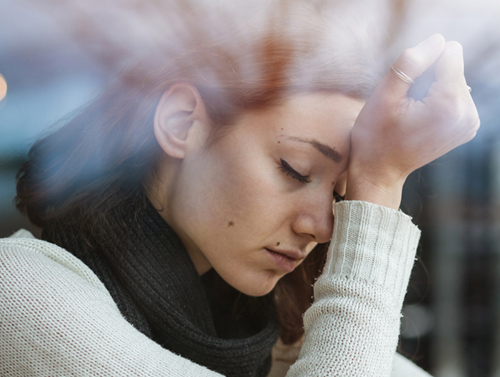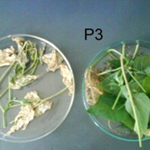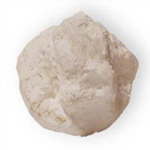 Depression is one of the major causes of disability and suicide all across the world.When depression is a co-morbidity with another medical condition, itmagnifies disability, diminishes adherence to medical treatment and rehabilitation, and may even shorten life expectancy.1
Depression is one of the major causes of disability and suicide all across the world.When depression is a co-morbidity with another medical condition, itmagnifies disability, diminishes adherence to medical treatment and rehabilitation, and may even shorten life expectancy.1
Mental disorders are common in medical practice and may present either as a primary disorder or as a co-morbid condition. Disorders of mood, thinking, and behavior may be due to a primary psychiatric diagnosis or a personality disorder or may be secondary to metabolic abnormalities, drug toxicities, focal cerebral lesions, seizure disorders, or degenerative neurologic disease. Any patient presenting with new onset of psychiatric symptoms must be evaluated for underlying psychoactive substance abuse and/or medical or neurologicillness.2 The best way to do is evaluate the patient on various Depression scales available. It gives an idea on the actual status and intensity of depression and helps in determining the treatment plan.
Pathogenesis1
Depression is a condition which does show genetic predisposition, especially when of early onset. The genetic predisposition is mediated by variants in a large number of genes and loci of small effectrather than mutations in single genes. Adversity and emotional deprivation early in life also predispose to depression. Depressiveepisodes are often, but not always, triggered by stressful life events (especially those that involve loss or imposed change), including medical illnesses. Associated biological factors includehypo function of monoamine neurotransmitter systems, including5-HT and noradrenalin (nor epinephrine), and abnormalitiesof the hypothalamic–pituitary–adrenal (HPA) axis, which results in elevated cortical levels that do not suppress withdexamethasone.1
Clinical Features2
Depression affects 15% of the general population at some point in life; 6–8% of all outpatients in primary care settings fit the diagnostic criteria.2
A small number of patients with major depression will have psychotic symptoms (hallucinations and delusions) with their depressed mood. Negative life events can precipitate depression, but genetic factors influence the sensitivity to these events. Onset of a first depressive episode is typically in early adulthood, although major depression can occur at any age. Untreated episodes generally resolve spontaneously in a few months to a year; however, a sizable number of patients suffer from chronic, unremittingdepression, or from a partial treatment response. Half of all patients experiencing first depressive episode will go on to a recurrent course. Untreated or partially treatedepisodes put the patient at risk for future problems with mood disorders. Within an individual, the nature of episodes may be similar over time. A family history of mood disorder is common and tends to predict a recurrent course. Major depression can also be the initial presentation of bipolar disorder (manic depressive illness). Some cases have been seen such patients have a history of showing seeking help from a physician within 1 month of their death. Physicians mustalways inquire about suicide when evaluating a case of depression.2
Diagnosis
Diagnosis of depression isto be madewhen five (or more) of the following symptoms have been present for 2 weeks (at leastone of the symptoms must be #1 or #2 below):2
Symptoms of depressive disorders1
Symptoms of depressive disorders
Psychological1
- Depressed mood
- Reduced self-esteem
- Pessimism
- Guilt
- Loss of interest
- Loss of enjoyment (anhedonia)
- Suicidal thinking
Somatic1
- Reduced appetite
- Weight change
- Disturbed sleep
- Fatigue
- Loss of libido
- Bowel disturbance
- Motor retardation (slowing of activity)
Another important factor in diagnosing cases of depression is use of Depression scales. The scales help to evaluate the symptoms and their severity and help to diagnose the level of depression and also aid in letting the physician decide the plan of treatment based on score.
Beck Depression Inventory (BDI)
The BDI is widely used as an assessment tool for depression by health care professionals and researchers in a variety of settings. It is a 21-item; self-report rating inventory that measures characteristic attitudes and symptoms of depression.
Types of Beck Depression Inventory
BDI, BDI-1A, BDI-II
BDI-II used when symptoms of depression such as hopelessness and irritability, cognitions such as guilt or feelings of being punished, as well as physical symptoms such as fatigue, weight loss, and lack of interest in sex.
Management
Pharmacological and psychological treatments both work indepression. In practice, the choice is determined by severity of condition and also choice of patient. Counselling has a very important role in managing of early cases of depression.
Medication is needed in cases of recurring cases and in cases where counselling isn’t helping.
- Patients with suicidal ideation require treatment by a psychiatrist and may requirehospitalization.2
- Most other patients with an uncomplicated unipolar major depression (a majordepression that is not part of a cyclical mood disorder, such as a bipolar disorder) can be successfully treated by a nonpsychiatric physician.2
- Vigorous intervention and successful treatment appear to decrease the risk offuture relapse.2
- Patients who do not respond fully to standard treatment are to be referred to apsychiatrist.2
- in conventional medicine antidepressant medications are the mainstay of treatment, although combinedtreatment with psychotherapy improves outcome. Symptoms are amelioratedafter 6–8 weeks at a therapeutic dose in 60–70% of patients.2
- Once remission is achieved, antidepressants are advised to be continued for 6–9 months.Patients must be monitored carefully after termination of treatment since relapse iscommon.2
- Patients with two or more episodes of depression should be considered for indefinitemaintenance treatment.2
- Severe depression complicated bypsychotic symptoms, dehydration or suicide risk may require ECT.1
Some conventional medicine treatments are being discussed below but they have to be taken only under the supervision of a Neurologist or psychiatrist.
- Electroconvulsive therapy is generally reserved for treatment-resistant depressionunresponsive to medication or for patients in whom the use of antidepressantsis medically contraindicated.2
- Transcranial magnetic stimulation (TMS) is approved for treatment-resistant depression in conventional medicine.2
- Vagus nerve stimulation (VNS) has been approved for treatment-resistant depression as well, but its degree of efficacy is controversial.2
Homeopathy has a definite role in managing depressionwith a rightly chosen remedy based on totality based treatment. The additional benefit of using homeopathy is that it is a non-habit-forming medicines.
Counseling has an important role to play in depression. The best results are got with an integrative approach where homeopathy and counseling go hand in hand. A rightly chosen homeopathic remedy corrects the neuro chemical balance and brings the patient back to normal self and she/he bounces back from depression. It might take few weeks to few months which depending on how long the patient had the condition and how severe was the condition. Few homeopathic medicines found useful for depression are being discussed below but should be given or taken in consultation with a registered homeopathic practitioner only. At our clinic we evaluate all cases of Depression and those who shows signs of depression on BDI scale or DASS-. Thereafter the patient is guided and made aware of the problem and treatment is planned. At every 4-6 weeks patient is evaluated on scale to monitor the response to therapy. Patient is also provided counselling wherever needed by expert counselors at the clinic and depression scales are evaluated jointly with the counselor. We have many evidence-based cases where patients have recovered from Depression and show improvement in Depression scales.
Depression Medicines:
Aurum metallicum
 Feeling of self-condemnation and utter worthlessness.Profound despondency, with increased blood pressure, with thorough disgust of life, and thoughts of suicide. Talks of committing suicide. Great fear of death. Peevish and vehement at least contradiction.Anthropophobia.
Feeling of self-condemnation and utter worthlessness.Profound despondency, with increased blood pressure, with thorough disgust of life, and thoughts of suicide. Talks of committing suicide. Great fear of death. Peevish and vehement at least contradiction.Anthropophobia.
Lycopodium clavatum
 Melancholy; afraid to be alone.Little things annoy, extremely sensitive.Averse to undertaking new things.Head strong and haughty when sick.Loss of self-confidence.Hurried when eating.Constant fear of breaking down under stress.Apprehensive.Weak memory, confused thoughts; spells or writes wrong words and syllables.Failing brain-power. Sadness in morning on awaking.
Melancholy; afraid to be alone.Little things annoy, extremely sensitive.Averse to undertaking new things.Head strong and haughty when sick.Loss of self-confidence.Hurried when eating.Constant fear of breaking down under stress.Apprehensive.Weak memory, confused thoughts; spells or writes wrong words and syllables.Failing brain-power. Sadness in morning on awaking.
Natrum muriaticum
 Psychic causes of disease; ill effects of grief, fright, anger, etc.Depressed, particularly in chronic diseases.Consolation aggravates.Irritable; gets into a passion about trifles. Awkward, hasty. Wants to be alone to cry.Tears with laughter.
Psychic causes of disease; ill effects of grief, fright, anger, etc.Depressed, particularly in chronic diseases.Consolation aggravates.Irritable; gets into a passion about trifles. Awkward, hasty. Wants to be alone to cry.Tears with laughter.
Natrum phosphoricum
 Lively music saddens. Melancholy, with periodical attacks of mania. Suicidal tendency; must exercise restraint.Inability to think.Dislikes to speak, or to be spoken to.
Lively music saddens. Melancholy, with periodical attacks of mania. Suicidal tendency; must exercise restraint.Inability to think.Dislikes to speak, or to be spoken to.
Contact us for more information on treatment option for depression with homeopathy, you can write to healwithomeopathy01@gmail.com or call 91-11-26431955 or what’s app 91-9718063158
References
- Ralston S.H., Penman I.D., Strachan M.W.J., Hobson R.P. Davidson’s, Principles and Practice of Medicine. 23rdrev.ed. Edinburgh; Churchill Livingstone/Elsevier; 2018. 1417p.
2.Kasper D.L., Fauci A.S., Hauser S.L., LongoD.L.,Jameson J.L., Loscalzo J. Harrison’s Manual of Medicine. 19th rev. ed.United States: McGraw Hill; 2016. 1222
